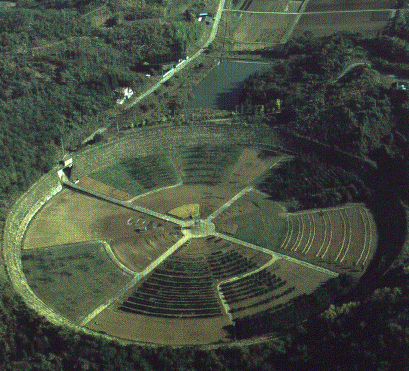Actually it has been done for decades. No opposition, no labels wanted, no protesters, no fear. Okay for organic cultivation and the EU. Let's look at a mutation breeding!
All genetic variation starts with mutation. Mutations are changes in DNA that ultimately may affect the expression or performance of a gene product. Mutations occur spontaneously at high rates during DNA replication and in response to natural mutagens like UV light. Cellular surveillance mechanisms are extremely robust and fix these errors before they affect the organism-- usually. Occasionally an error is not corrected and results in a permanent change in that gene, perhaps changing a trait of interest. Mutations are the source for pure genetic variation, but also are the basis for many diseases.
Mutation breeding is the process of inducing genetic variation in a crop through use of chemical treatment or radioactivity. Chemicals like ethyl methane sulfonate (EMS), sodium azide (SA), N-nitroso-N-methylurea (NMU) are used to soak seeds or treat tissue or pollen in culture. They induce random changes in DNA, usually single bases or small deletions. These changes alter the encoded protein, forming new proteins that may be more or less functional, or perhaps truncated or even not made at all.
For radiation, fast neutrons, x-rays or gamma rays bombard seeds causing double-strand breaks in chromosomes. These lead to larger deletions of genetic material and sometimes rearrangements. These changes are essentially random. They are induced by short-term exposure (seconds to hours) to a powerful radioactive source, usually Cobalt-60. Sometimes whole plants are grown in high radioactive fields to generate these genetic errors. The Institute for Mutation Breeding in Japan has generated a number of cultivars using these techniques.

A powerful radioactive source in the center of this field hammers surrounding plants with gamma rays. This treatment induces random damage DNA that results in new genetic variation.
Actually many cultivars have been produced using this technique. There is a wealth of information at the Mutation Enhanced Technologies for Agriculture website. Barley, wheat, corn, bananas, grape, tomato, sunflower... at least 3000 induced-mutant plant lines in the Mutant Variety Database. Some are ornamentals, so not all food crops.
In the USA there are maybe 100 examples including grapefruits, lettuces, oats, common bean, peppermint, wheat, rice, hops and barley.
Transgenic techniques come under fire for many reasons. Let's hold mutation breeding to the same criteria and compare the two techniques for some common criticisms:
How do transgenic (GMO) plants compare to plants derived from mutation breeding for commonly raised criticisms?
What about labels, organic cultivation, growth in the EU? No problem if the plant's DNA has been scrambled by radiation or chemicals! Here is an ironic juxtaposition of acceptability.
Angry citizens demand to know what is in their food... unless it is mutation bred, then not so much.
For intellectual consistency, mutation breeding of crops must be considered much more random, unpredictable, un-assessable and imprecise. There is no question that genetic changes have been made, as traits of interest are selected based on visible traits, such as resistance to drought/cold in wheat. There is no easy way to assess what additional genetic baggage comes along with that new trait.
Don't get me wrong, I don't see any problem with mutation breeding. The techniques are proven successful at producing useful genetic variation that results in improved plants. Awesome. As a scientist, it is difficult to reconcile how this method is freely accepted, while transgenic techniques are harshly criticized. Or is it?
Maybe it simply points out that the scientific and intellectual arguments against genetic alterations are not the real concerns-- they are just strawmen for the actual political, business or social agendas. The science of transgenics is a convenient place to cultivate misunderstanding and fear. But somehow the same fear mongers miss mutation breeding.
It tells us a little about the real agenda. It is not about the process or product, but rather, who makes the product.







Comments